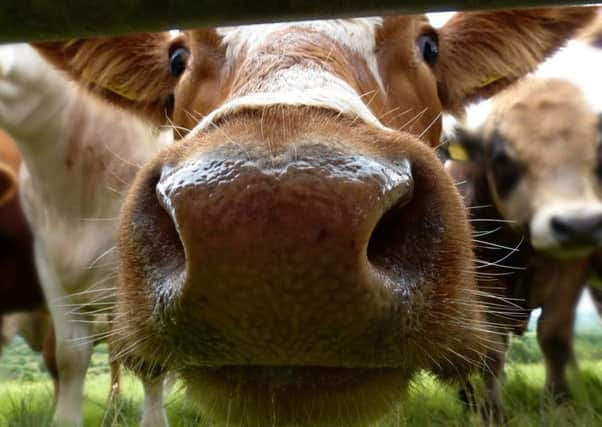Warning to farmers after cow starves to death


A dead cow examined by one of Scotland’s Rural College (SRUC) Veterinary Investigation Centres has confirmed earlier fears that some silages being fed to livestock this winter are too low in protein.
Veterinary investigation officer Heather Stevenson said: “In November SRUC warned that our analytical labs had identified that there were more lower protein silages around than usual this winter.
Advertisement
Hide AdAdvertisement
Hide Ad“We highlighted the potential risks of feeding low protein grass silages to spring calving suckler cows. Animals not receiving enough protein from their feed often look healthy and full which means their condition is sometimes not discovered until too late.
“The case investigated was one of two cows to die in a group.”
Silage is a fermented, high-moisture stored food, such as dried hay or straw.
The dead cow examined was diagnosed with a condition called rumen impaction.
Advertisement
Hide AdAdvertisement
Hide AdThe first stomach, or rumen, of a cow is like a large bag hosting millions of microbes that help ruminant animals begin to digest the plant material they eat.
Rumen impaction occurs when what the animals eat contains insufficient protein to supply these microbes which affects their activity. This reduces the rate of fermentation or digestion and leads to blockages which slow the progress of food into the next part of the digestive system. It also means there is less space in the rumen for any new food the animal eats.
SRUC is recommending that any farmer who has not recently analysed their silage get it done as soon as possible as low protein content is difficult to spot.
“Sometimes there are signs in the dung which is far firmer and drier than normal for the time of year,” said Heather. “Blood samples can be used to confirm low protein status and the farmer’s vet would notice other signs. But it is important farmers keep alert.”
The problem can also affect other ruminants, like sheep, fed on similar silages.